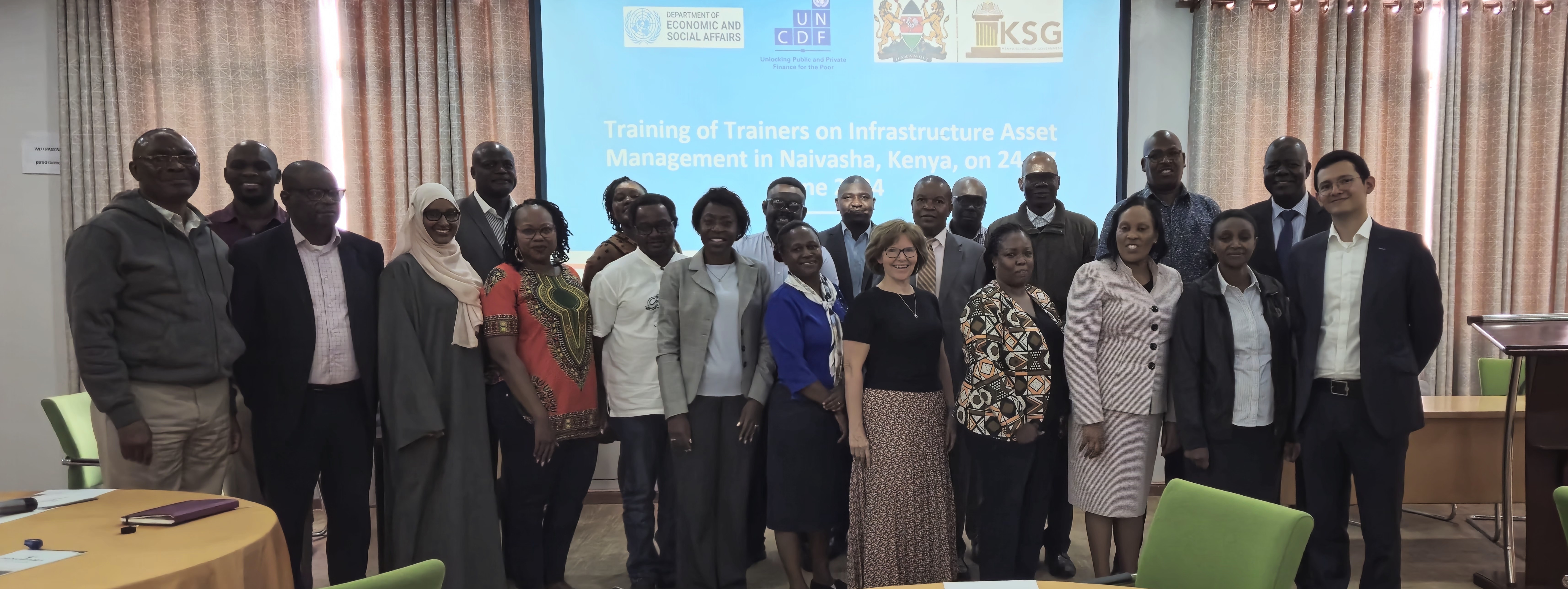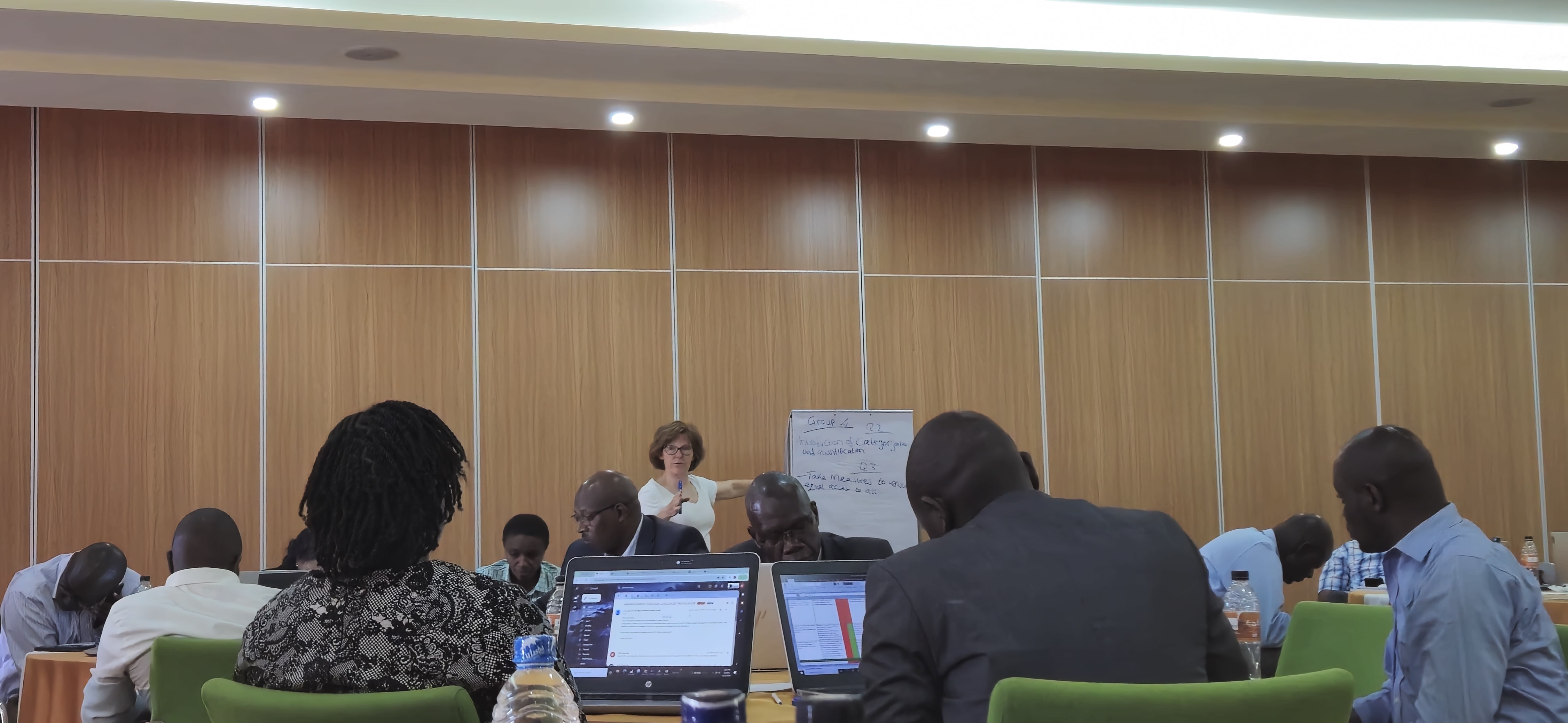
Climate change, shrinking fiscal budgets, and urbanization all put strain on Kenya’s public services, making it imperative to strengthen the resilience, sustainability, and accessibility of infrastructure assets that provide essential public services to all, including water and sanitation, waste management and transport facilities. Research by UNOPS and the University of Oxford shows that infrastructure impacts the achievement of all 17 SDGs, including up to 92% of their targets. The costs of under-maintained infrastructure are staggering, with potential annual losses of up to 2% of Gross Domestic Product (GDP). 92% of assets
SDGs In response to this challenge, the Kenya School of Government has joined forces with the United Nations agencies (UN DESA, UNCDF and UNOPS) to introduce a new and innovative training programme for central and local government officials in Kenya to manage and maintain public infrastructure more sustainably. Senior faculty of the Kenya School of Government convened in Naivasha from 23-27 June 2024, for an intensive training of trainers course conducted by a UN team of experts. The team was led by Ms. Linda Newton, a global UN Advisor on infrastructure asset management (IAM. With the support of mock-up lessons, demonstrations and structured class-room interactions, the training focused on how to effectively apply the toolkits outlined in the UN Handbook on infrastructure asset management, including the diagnostic tool, Asset Management Action Plans, data and climate vulnerability assessment tools. The aim was to equip participants with the skills to convey these concepts in a practical and accessible manner to local governments.

“To ensure past and future investments into infrastructure have a sustained impact, it is key to equip Kenyan public sector officials in charge of infrastructure assets with the tools to manage infrastructure effectively and sustainably over the long term. That is why Kenya’s School of Government is taking advantage of extensive and very useful UN training toolkits on IAM and will further adapt those to the Kenyan context”, said Dr. Humphrey Mokaya of KSG. The ultimate goal is to embed asset management deeply within Kenya's administrative framework and cultivate a culture of responsible asset management across all government sectors.
The new programme will build on three years of UN DESA, UNCDF and UNOPS capacity development support for counties in Kenya on infrastructure asset management. As a result of the initiative, 8 counties have designed and endorsed Asset Management Action Plans (AMAPs) with some introducing new asset management policies and including priority actions identified in the AMAPs in their counties’ Integrated Development Plans (CIDP) 2023-2027.

More sustainable infrastructure asset management has also received increasing attention globally to strengthen local government’s finance capacities over the long term.
“Well-maintained infrastructure not only ensures the reliable, equitable, and inclusive delivery of essential public services to all but also significantly enhances the fiscal space and promotes domestic resource mobilization. Between 70-85% of infrastructure costs typically happen after the construction phase. That is why IAM has become a central focus of UNCDF’s work on local government finance” stressed Dr. Mkhululi Ncube of UNCDF.
Resilient and farsighted management reduces those costs significantly because assets break down less frequently and need repair less often. It will also increase the revenue potential of many assets, through a wider base of users and taxpayers willing to pay for what works well and leaves no one behind.
Yet, safeguarding enormous public investments on infrastructure systems in the long run will only be possible if local and national governments across the globe manage them collectively in a sustainable and sustained way, across electoral cycles and across generations.
“Going forward, the UN is ready to continue to collaborate on the design and integration of new asset management modules into existing and new training modules for local government officials in Kenya.” stressed Mr. Luis Pineda of UN DESA. The workshop was implemented as part of the “UN Capacity Development Initiative on Enhancing the Resilience, Accessibility, and Sustainability of Infrastructure Assets in Developing Countries in Support of the 2030 Agenda”, which is funded by the UN Peace and Development Fund.
